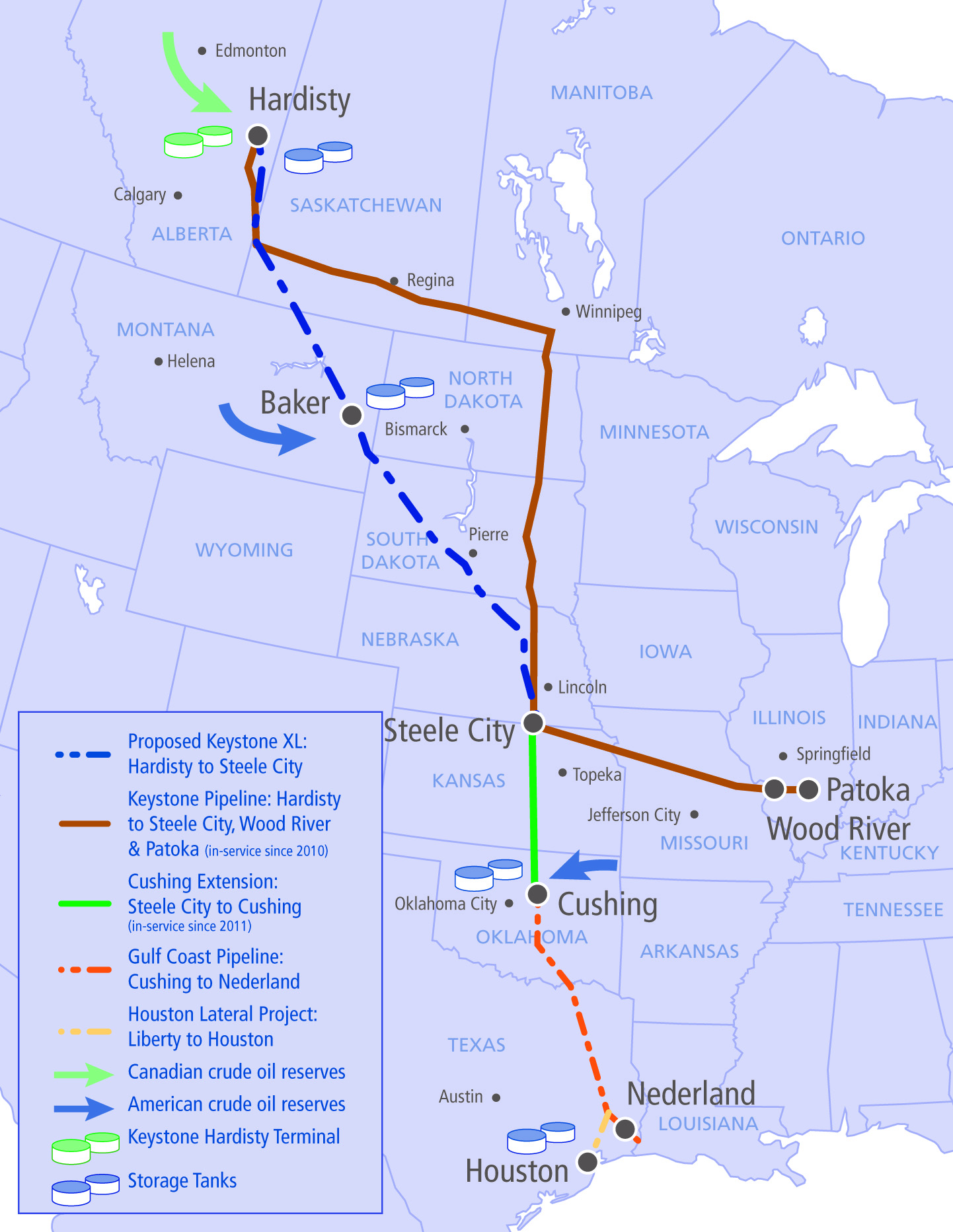Keystone Backers Look to Obama's Successor to Make the Call

WASHINGTON (AP) — The company pleading for permission to build the Keystone XL pipeline looked beyond President Barack Obama on Tuesday in apparent hopes a future Republican president would green-light the project. But the administration signaled it was in no mood to hand off the decision to the winner of the 2016 election.
TransCanada insisted its request for the United States to suspend its review of the proposed project had nothing to do with presidential politics even though a delay could thrust the decision a year or more into the future, likely putting it in the hands of Obama’s successor. Questioning the motivation for the Canadian energy giant’s request, the White House said, “there might be politics at play” and Obama still intended to make the decision.
It was an unusual reversal of roles for TransCanada, which complained bitterly for years about Obama’s delays before suddenly requesting one of its own. Likewise, Obama’s administration, after seven years of delay, seemed to discover a newfound sense of urgency when faced with the prospect of letting the next president make the call.
The State Department, the official arbiter of the pipeline permit, said it was considering TransCanada’s new request, but in the meantime the pipeline review would move forward unabated.
“We’d like to finish this review process as swiftly as possible,” spokeswoman Elizabeth Trudeau said Tuesday. That was 2,601 days after TransCanada first proposed the $8 billion project.
For TransCanada, a delay into 2017 might improve the prospects for approval — if a Republican wins the White House. The GOP presidential field is unanimous in its support for Keystone, while Obama has downplayed its benefits and emphasized environmental risks, setting up a high bar for approval.
All of the major Democratic candidates oppose it — including front-runner Hillary Rodham Clinton, who oversaw the early phase of the pipeline review as Obama’s first-term secretary of state.
Ahead of TransCanada’s request, Keystone supporters had feared Obama would seize on a brief window between Canada’s recent elections and the conclusion of global climate talks next month to kill the project in grand fashion, solidifying his environmental bona fides. Obama hopes to make a global climate pact the capstone of his environmental legacy and has sought to show aggressive action to curb carbon dioxide emissions as world leaders prepare to finalize an agreement in Paris.
For Obama, the 1,179-mile proposed pipeline has swelled over the years into a behemoth political hot potato. White House spokesman Josh Earnest said Obama had sought to “shield this process from politics,” but the president’s many delays have only injected more politics and posturing into the national debate.
Sen. John Hoeven, R-N.D., a vocal Keystone supporter, said it would be inconsistent for Obama to reject TransCanada’s request since the company has worked diligently to meet every legal and regulatory hurdle.
“Are they going to have a double standard here? They’ve held TransCanada up for almost seven years,” Hoeven said in an interview.
While most cross-border pipelines take less than 18 months to approve or reject, Keystone’s has dragged on since September 2008 — shortly before Obama was elected. In late 2011, Obama announced he would hold off until after the 2012 election, taking the issue off the table for his own re-election fight. When Congress tried to force his hand, he rejected the application but allowed TransCanada to re-apply.
As envisioned, Keystone XL would extend from Alberta’s tar sands to Nebraska, where it will connect with existing pipelines carrying crude oil to refineries along the Texas Gulf Coast. Another delay in 2014, ostensibly prompted by a dispute over the Nebraska route, further pushed the decision until after the 2014 midterm elections.
The pipeline has drawn intense ire from environmental groups who say it’s inconsistent with Obama’s goal to cut emissions and reduce dependency on fossil fuels. Yet Republicans, energy advocates and other supporters maintain it will create jobs and reduce U.S. reliance on Middle Eastern oil.
TransCanada cited the ongoing legal questions in Nebraska as the reason to delay.
However, the sense of urgency that for years characterized the company’s approach may have fallen off recently amid a sharp drop in oil prices. Once topping $100 a barrel, crude oil has fallen to less than $50, making the business of extracting and transporting the product much less lucrative. By keeping a decision at bay for another year or more, TransCanada could await a potential resurgence in the price of oil while increasing its prospects for Keystone’s approval.
But TransCanada CEO Russ Girling, in a conference call to discuss corporate earnings Tuesday, said Keystone remains economically viable for the company, noting that oil prices are about the same now as they were in 2008 when the company first applied.
Associated Press writer Rob Gillies in Toronto contributed to this report.
Related News
Related News

- Kinder Morgan Proposes 290-Mile Gas Pipeline Expansion Spanning Three States
- Valero Plans to Shut California Refinery, Takes $1.1 Billion Hit
- Three Killed, Two Injured in Accident at LNG Construction Site in Texas
- Tallgrass to Build New Permian-to-Rockies Pipeline, Targets 2028 Startup with 2.4 Bcf Capacity
- TC Energy Approves $900 Million Northwoods Pipeline Expansion for U.S. Midwest
- New Alternatives for Noise Reduction in Gas Pipelines
- EIG’s MidOcean Energy Acquires 20% Stake in Peru LNG, Including 254-Mile Pipeline
- Construction Begins on Ghana's $12 Billion Petroleum Hub, But Not Without Doubts
- DOE Considers Cutting Over $1.2 Billion in Carbon Capture Project Funding
- Valero Plans to Shut California Refinery, Takes $1.1 Billion Hit




Comments